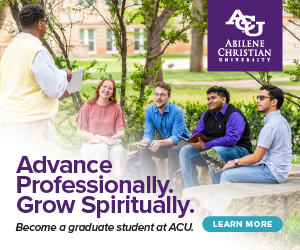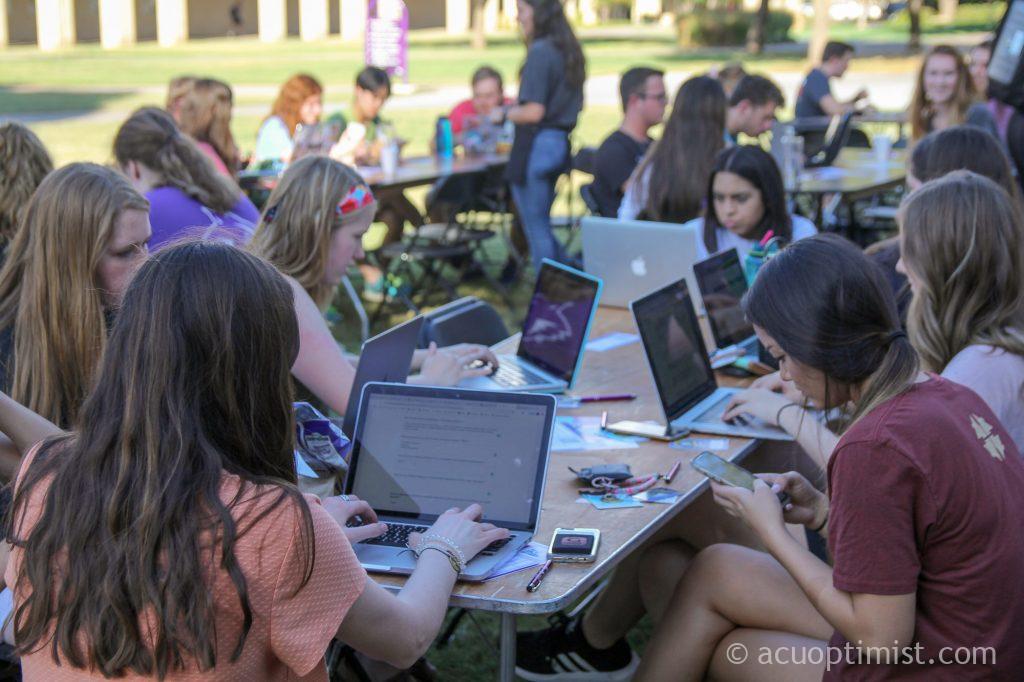One-in-every-four full time college students across America suffer from food insecurity and the repercussions that follow if not acted upon.
The stereotype of “starving college student” is not just a stereotype, it has become a fact for roughly 25 percent of four-year college students across the United States. For community college students, the percentage increases to 56% of full-time students who suffer from food insecurity.
The United States Department of Agriculture defines food security as “access by all people at all times to enough food for an active, healthy lifestyle.” Thus, Individuals who are food insecure are unable to access quality food on a consistent basis.
Food insecurity has seldom been a topic of conversation across America due to the lack of knowledge on the subject, until an ACU student researched and reported on the subject and won the 2019 Hatfield Prize for her research.
ACU Graduate student in Social Work, Shannon Que alongside professor of Social Work, Dr. Stephen Baldridge began research last year on the topic of food insecurity in universities and community colleges across America. The process began with mulling ideas for an application for the Hatfield Prize, a scholarship awarded by the Council for Christian Colleges and Universities (CCCU) to those who make advances in complex social challenges.
Que said that based on Dr. Baldridge’s passions on food justice and food insecurity, they narrowed their selection down to food insecurity on college campuses.
“I looked a little more into it,” Que said. “and after five minutes of looking into the statistics, this is something we should talk about.”
Their research showed that 11.8 percent of all U.S. households, approximately 15 million people, suffered from food insecurity in 2017. This data led Que to find where the problem originated, and she believes it begins with low-income families.
Her research showed that the highest average rate of national food insecurity came from households at or below the poverty line, households headed by a single-parent women or single-parent men, both men and women living alone, as well as Black and Hispanic households.
“The root of it is the socioeconomic inability to purchase enough food, or quality of food to maintain a healthy lifestyle,” Que said.
Que said that food insecurity will not just lead to hunger for students, but more immediate problems as well as detrimental issues further along in their college careers or in their life. She believes that it is a domino-effect for students who suffer from food insecurity.
Her research showed that when students miss meals, they will lose focus in their classes and lead to added anxiety in an already stressful situation. She believes the added anxieties and loss of focus could result in higher percentages of students dropping classes, dropping out and losing self-confidence when attempting completion of a university degree or job searches.
Que believes that awareness is the biggest issue revolving around food insecurity on campuses. By providing awareness of government programs and on-campus programs such as SOAR, it can greatly contribute to the decline of food insecurity.
The Supplemental Nutrition Assistance Program, SNAP or formerly known as Food Stamps, are available to college students if their socioeconomic status is within SNAP’s regulations. Que believes that if more students hear about these programs and are encouraged to reach out, the percentage of “starving college students” could drastically decrease.
“As a group, as a cohesive unit, what are we able to do for our students,” Que said. “We could provide meals, host events with food, and then refer students to SOAR, which is our biggest resource as of now.”
Que and fellow graduate student Jack Oduro will continue to research food insecurity around Abilene, specifically ACU. By continuing their research, they believe gathering specific data for ACU will decrease the likelihood food insecurity presents itself as an issue, as well as raise awareness around campus.


